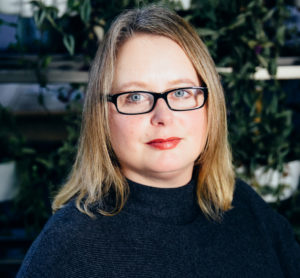Among its many functions, your interview is your opportunity to sell yourself to your future employer.
This isn’t always easy as we rarely think about what we are good at. We have been trained to seek out the areas we could improve. In the main, our annual review focuses on our development needs and what we need to do to achieve our professional goals.
A key element of being successful at an interview is knowing our skills. Being aware of those means we can use them to help secure a new job.

Do you know what your key strengths are?
Being aware of your key strengths doesn’t mean you are overconfident or arrogant.
Discovering what you are good at is easier than you may think, and while it may be uncomfortable at first to list your positive attributes, you will reap the rewards.
S.W.O.T
If you should be finding it difficult to pin down your strengths and think of applicable situations, you may like to conduct a SWOT analysis on yourself.
S.W.O.T is an acronym and helps you work out your
- Strengths
- Weaknesses
- Opportunities
- Threats
This model helps you to evaluate where you excel, what you could improve, and how you have or could overcome challenges.
It is a particularly useful tool that can help you succeed in a job interview. It creates talking points and allows you an insight into your past professional work.

Here is a breakdown of each area of the S.W.O.T model.
Strengths.
- Think about your personal characteristics as well as your technical or professional skills.
- Are you determined? Do you have great analytical skills? Are you able to problem solve and have a solution focussed mindset?
- Once you have these in place, try to think of real world situations where these skills can be evidenced.
Weaknesses.
- Your weaknesses are areas where you could improve.
- It’s important to be aware of your weaknesses and demonstrate an ability to be self-evaluative.
- When you have created this list, think about what you have done, are doing or plan to do to help you work on these.

Opportunities.
- In this context, the ‘opportunities’ element of the model is the external conditions you could take advantage of.
- Begin by thinking about the company you are interviewing at and go from there. For example, does your new company offer a training budget or schedule time for staff development?
- Refer to your weaknesses and suggest areas where you could develop further. Could you improve your Excel skills, or do you have an aspiration to learn a new programming language?
Threats.
- These are negative external conditions that you can minimise. Again, we’d suggest you refer to your weaknesses here.
- How could your weaknesses grow to be a threat if they aren’t challenged or addressed directly?

In sum.
- Being prepared for your interview is the key to success. This includes thinking about the questions that refer to you, not just your technical skills, ability, or experience.
- The S.W.O.T model will help you pick out where you excel and highlight the areas where you could improve.
- Once you have these in place, you are free to think of scenarios where these can be demonstrated.
- The S.W.O.T model provides a great springboard for discussion between you and your interviewer.
- Once you have the strengths element in place, use these to enhance your CV.

Do you need more interview preparation advice?
Are you struggling with preparing the answers to some of the most frequently asked interview questions?
Here are some quick links to the Employee Advice section of our blog.
How to talk about your weaknesses in a job interview.
Behavioural Questions. 6 interview tips.
These pages are crammed full of candidate advice on jobs seeking tips. So whether you are looking to improve your CV, ace your remote job interview or complete your LinkedIn profile, we have you covered!





